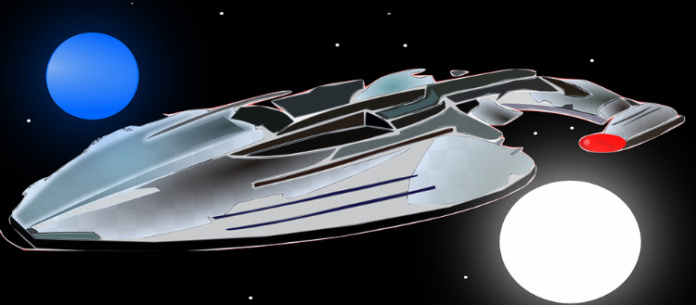There are many movies featuring alien life forms — specifically ones where an alien race comes to Earth — either to take it over, use it for recourses or to punish human beings. This includes films like “Independence Day,” “Men in Black,” “Transformers,” “Home” and “War of the Worlds.” However, it appears that humanity may be considering turning itself into the alien race we’ve feared since the beginning of science fiction.
The world has recently been in search of other habitable planets for decades. Possibilities of living on the moon and on Mars have been discussed, and with the discovery of the Trappist system, people seem more convinced than ever that it’s time for the human species to ditch planet Earth. However, giving up on Earth is the last thing we should do. It would be unethical to find other worlds to explore and settle on until we’ve fixed the one we’ve broken and worked out all the kinks in our home system.
One must admit the idea of finding new land to explore with the possibility of many new people to meet sounds glamorous and educational, but we thought the same thing during the Colonial period. Knowing the history of the human race, we would probably enslave and murder the population of the new planet to claim it as our own to destroy. James Cameron’s “Avatar” is a great example of this, because it shows the dangers and horrors of humans traveling to different planets. In this movie the travels become less of scientific or friendly experiments and more like military invasions because, as the movie foreshadows, we “killed our mother” Earth. But it’s not too late to save our home.
We need to stop focusing our attention on running away and start paying attention to the important task at hand. There are plenty of available resources for the leaders of Earth to fix what we’ve broken. There are solar panels, which, as I’ve explained in a previous story, can serve more powerfully than people want to admit. There are several replacement materials for plastic, hybrid cars that can completely replace those that run on gas/fossil fuels, and — of course — there’s wind power.
“On Earth when something breaks you don’t fix it, you replace it.,” said Chris Pratt’s character in “Passengers.” That’s how we’re treating not only the objects or systems on our planet, but the planet itself.
Many believe it’s best for the human race to find a new planet because ours is too far gone to save. However, it’s this kind of negative thinking that has prevented us from doing anything substantial regarding the well-being of our planet in the first place. Stephen Hawking himself says that humans need to colonize elsewhere or we’re doomed within the next hundred years. Is that really what we want?
If we can manage to destroy and use up a good chunk of our planet within the last hundred years or so, then I’d bet that a hundred years is enough time to undo the damage. It’s not too late if we decide to care. And if it really is true that planet Earth is too far gone to save, the last thing humanity deserves is another planet to kill. The bottom line is that the only ethical response we have is to fix what we have, or die trying here on Earth.
Read Again http://dailyutahchronicle.com/2017/11/13/patience-shouldnt-planet-b/Bagikan Berita Ini
















0 Response to "Patience: There Shouldn't Be A Planet B"
Post a Comment